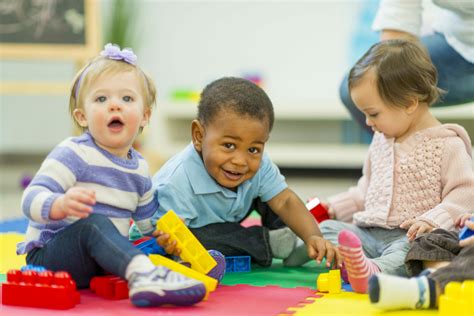When it comes to shaping the future generations, early childhood education plays a crucial role in setting the stage for a child’s lifelong learning journey. In this blog post, we will delve into the importance of early childhood education and its impact on various aspects of a child’s development. From building a strong educational foundation to fostering curiosity and promoting emotional and social development, early childhood education has the power to significantly influence a child’s future academic success and overall well-being. We will also explore how it can address achievement gaps and inequality, develop critical thinking and problem-solving abilities, instill values and ethics, and create a positive attitude towards education while reducing socioeconomic disparities in educational attainment. Join us as we uncover the multitude of ways in which early childhood education plays a pivotal role in shaping the generations to come.
Table of Contents
Building a Strong Educational Foundation
Building a strong educational foundation is essential for providing children with the tools they need to succeed in school and beyond. This foundation begins in early childhood, as children learn the basic skills needed for academic success. By focusing on early literacy and numeracy skills, children can develop a strong foundation that will support their learning throughout their school years.
In addition to academic skills, building a strong educational foundation also includes fostering a love of learning and a curiosity about the world. When children are encouraged to explore their interests and ask questions, they develop a lifelong passion for learning that will serve them well in the future.
Parents and educators play a crucial role in building a strong educational foundation for children. By providing a supportive and stimulating environment, adults can help children develop the skills and attitudes they need to succeed. By focusing on early childhood education and providing children with the resources they need to thrive, we can build a strong foundation for future success.
By investing in early childhood education and supporting children as they develop essential skills, we can ensure that every child has the opportunity to succeed in school and in life.
Enhancing Cognitive Development and Skills
Enhancing cognitive development and skills is crucial for children’s overall growth and success. By providing a stimulating and enriching environment, parents and educators can help nurture a child’s cognitive abilities from an early age. This can be done through activities that encourage problem-solving, abstract thinking, and logical reasoning.
Exposing children to a wide range of experiences, such as hands-on learning, puzzles, and educational games, can also enhance their cognitive skills. Additionally, encouraging exploration and inquiry can help children develop their curiosity and creativity, which are essential components of cognitive development.
Furthermore, providing opportunities for children to engage in real-world experiences and interactions can significantly impact their cognitive skills. This can include tasks that require planning, decision-making, and reflection, all of which contribute to the development of cognitive abilities.
By focusing on enhancing cognitive development and skills, parents and educators can empower children to become critical thinkers, innovative problem-solvers, and lifelong learners, setting them up for success in the future.
Promoting Emotional and Social Development
Emotional and social development are crucial aspects of a child’s overall growth and well-being. It encompasses the ability to understand and manage one’s own emotions, as well as the capacity to interact effectively with others. Emotional intelligence plays a significant role in a child’s success in school and later in life, making it essential to promote this aspect of development from an early age.
One way to promote emotional and social development is through fostering empathy and compassion in children. This can be done by teaching them to consider the feelings and perspectives of others, and to respond with kindness and understanding. By modeling these behaviors and providing opportunities for children to practice them, we can help them develop strong interpersonal skills and build healthy relationships with their peers.
Additionally, providing a supportive and inclusive learning environment is crucial for promoting emotional and social development. Creating a space where children feel safe, respected, and valued allows them to express themselves authentically and build a sense of belonging within their community. This sense of connection and acceptance fosters a positive self-image and enhances the child’s ability to navigate social interactions with confidence and grace.
Ultimately, promoting emotional and social development in children is not only beneficial for their individual well-being, but also for the overall harmony and cohesion of society. By prioritizing these aspects of growth, we can help shape a generation of individuals who are not only academically proficient, but also empathetic, resilient, and socially responsible.
Fostering Curiosity and Lifelong Learning
One of the most important aspects of education is fostering curiosity and promoting lifelong learning. When children are naturally curious about the world around them, it is essential to nurture and encourage this curiosity. By providing them with the tools and resources to explore and learn, we can help them develop a love for learning that will last a lifetime.
Encouraging lifelong learning involves creating an environment in which education is valued and celebrated. This can be achieved by exposing children to a variety of subjects and interests, allowing them to pursue their passions, and showing them the joy of discovery. By instilling a love for learning, we can help children develop the skills and mindset necessary to be successful in today’s ever-changing world.
When children are actively engaged in learning and exploring, they not only develop a strong foundation of knowledge, but also important critical thinking and problem-solving skills. These skills are essential for success in both education and in the workforce, and by fostering curiosity and lifelong learning, we can help children acquire the tools they need to thrive.
Overall, fostering curiosity and promoting lifelong learning is a crucial aspect of education that has a lasting impact on a child’s academic success and personal growth. By creating a supportive environment that encourages exploration and curiosity, we can help children develop the skills and mindset necessary to be lifelong learners and successful individuals.
Addressing Achievement Gap and Inequality
One of the major challenges in education today is the achievement gap and inequality that exists among students. This gap refers to the disparities in academic performance and educational attainment between different groups of students, such as those based on race, ethnicity, income level, or geographic location. Addressing this issue is crucial for creating a more equitable and inclusive education system.
One way to address the achievement gap and inequality is by implementing targeted interventions and support systems for students who belong to underprivileged or marginalized groups. This could involve providing extra resources, such as tutoring or academic assistance, to help these students catch up to their peers. Additionally, creating mentorship programs and peer support groups can also be effective in providing the necessary guidance and encouragement for these students to succeed academically.
Educational policymakers and administrators also play a key role in addressing the achievement gap and inequality. By implementing policies and programs that aim to level the playing field and provide equal opportunities for all students, they can help bridge the gap and ensure that every student has access to a quality education. This can include measures such as redistributing resources to schools in low-income areas, implementing culturally responsive teaching practices, and promoting diversity and inclusion in the curriculum.
Furthermore, parents and communities also have a part to play in addressing achievement gap and inequality. By actively participating in their children’s education and advocating for equitable policies and resources, parents can help ensure that their children have the support they need to succeed. Engaging with the local community and supporting initiatives that aim to reduce disparities in educational attainment can also contribute to creating a more inclusive and supportive learning environment for all students.
Impacting Future Academic Success
Providing children with a strong educational foundation can have a significant impact on their future academic success. When children are equipped with the necessary cognitive development and skills from a young age, they are better prepared to excel in their academic endeavors as they progress through their education.
By promoting and fostering curiosity and lifelong learning in children, educators and parents can help instill a passion for knowledge that will drive them towards academic achievement. Additionally, addressing the achievement gap and inequality by providing equal opportunities to all students can contribute to their future academic success.
Developing critical thinking and problem-solving abilities is crucial for students to navigate the challenges they will encounter in their academic journeys. By encouraging students to think critically and approach problems analytically, they are better equipped to succeed academically.
It is essential to focus on impacting future academic success by nurturing children’s academic abilities and providing them with the tools to excel in their educational pursuits. This not only benefits the individual students but also has a positive impact on the larger community as a whole.
Developing Critical Thinking and Problem-Solving Abilities
Developing critical thinking and problem-solving abilities in children is crucial for their overall intellectual growth and future success. By engaging in activities that encourage them to analyze, evaluate, and think creatively, children can develop the skills necessary to navigate complex challenges throughout their lives.
One way to promote critical thinking is to encourage open-ended discussions and debates. By allowing children to explore different perspectives and form their own opinions, they can learn to think critically about issues and consider various solutions to problems.
Additionally, providing children with hands-on activities and puzzles can help them develop problem-solving abilities. Whether it’s building a structure with blocks or solving a math problem, these activities can teach children to approach challenges with patience and perseverance.
It’s important for parents and educators to create an environment that fosters critical thinking and problem-solving, as these skills are essential for success in school, work, and everyday life.
Instilling Values and Ethics from an Early Age
Instilling values and ethics from an early age is crucial in shaping the character and moral compass of children. It lays the foundation for their behavior and decision-making as they grow older.
When children are taught the importance of honesty, empathy, and respect, they are more likely to carry these values with them into adulthood. This can lead to a more harmonious and ethical society.
Parents, teachers, and caregivers play a vital role in imparting these values to young children. By leading by example and incorporating ethical discussions and activities into their everyday lives, adults can help instill these values in the impressionable minds of the children around them.
By emphasizing the importance of ethics and values from an early age, we can contribute to the creation of a generation of individuals who prioritize integrity and compassion in their personal and professional lives.
Creating a Positive Attitude Towards Education
One of the most important goals of education is to create a positive attitude towards learning in students. When children have a positive attitude towards education, they are more likely to be motivated, engaged, and successful in their academic endeavors. In order to foster a positive attitude towards education, it is essential for educators and parents to provide a supportive and encouraging environment that emphasizes the value of learning.
One way to create a positive attitude towards education is by making learning fun and interactive. Incorporating games, hands-on activities, and real-world examples into the curriculum can help students see the relevance and excitement of learning. Additionally, fostering a growth mindset, where students believe that their abilities can be developed through hard work and dedication, can significantly impact their attitude towards education.
Another important aspect of creating a positive attitude towards education is by providing opportunities for students to explore their interests and passions. Allowing students to pursue projects and activities that align with their personal interests can help them develop a sense of purpose and enthusiasm for learning. Moreover, celebrating their achievements and efforts, no matter how small, can boost their confidence and reinforce a positive attitude towards education.
Ultimately, creating a positive attitude towards education requires a collaborative effort from educators, parents, and the community. By fostering a supportive and nurturing environment, providing engaging and relevant learning experiences, and celebrating students’ achievements, we can empower young learners to develop a lifelong love for learning.
Reducing Socioeconomic Disparities in Educational Attainment
Reducing socioeconomic disparities in educational attainment is crucial for creating a more equitable society. When children from low-income families have limited access to quality education, they face significant barriers to success in school and beyond. These disparities can perpetuate cycles of poverty and limit social mobility.
One way to address this issue is by investing in early childhood education programs that provide children from low-income families with the same opportunities for educational enrichment as their more affluent peers. By starting early, we can help close the gap in academic readiness and set all children on a more equal footing as they begin their formal education.
Additionally, it is essential to provide financial aid and scholarship opportunities for students from low-income backgrounds who aspire to pursue higher education. This can help alleviate the financial burden that often deters them from seeking post-secondary degrees and further perpetuates educational inequality.
Furthermore, initiatives to improve community resources and mentorship programs can provide additional support to students from disadvantaged backgrounds. By creating a more inclusive and supportive educational environment, we can help all students reach their full potential, regardless of their socioeconomic status.





